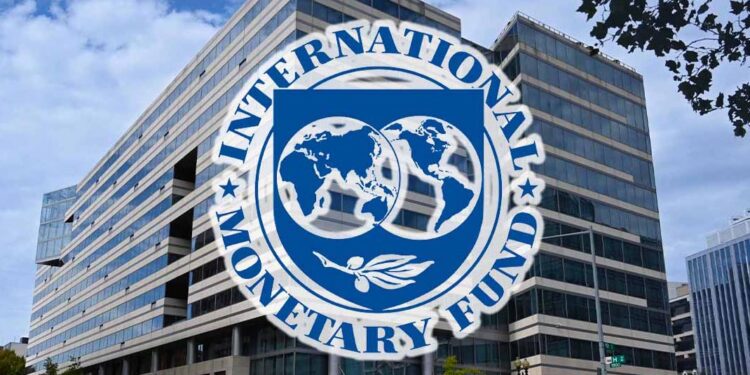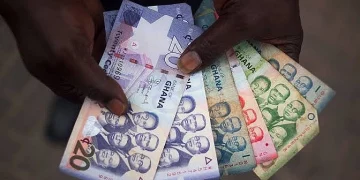The IMF is failing countries like Kenya: why, and what can be done about it
The recent Kenyan protests are a warning that the International Monetary Fund (IMF) is failing. The public does not think it is helping its member countries manage their economic and financial problems, which are being exacerbated by a rapidly changing global political economy.
To be sure, the IMF is not the only cause of Kenya’s problems with raising the funds to meet its substantial debt obligations and deal with its budget deficit. Other causes include the failure of the governing class to deal with corruption, to spend public finances responsibly and to manage an economy that produces jobs and improves the living standards of Kenya’s young population.
The country has also been hammered by drought, floods and locust infestations in recent years. In addition, its creditors are demanding that it continue servicing its large external debts despite its domestic challenges and a difficult international financial and economic environment.
The IMF has provided financial support to Kenya. But the financing is subject to tough conditions which suggest that debt obligations matter more than the needs of long-suffering citizens. This is despite the IMF claiming that its mandate now includes helping states deal with issues like climate, digitalisation, gender, governance and inequality.
Unfortunately, Kenya is not an isolated case. Twenty-one African countries are receiving IMF support.
In Africa, debt service, on average, exceeds the combined amounts governments are spending on health, education, climate and social services.
The tough conditions attached to IMF financing have led the citizens of Kenya and other African countries to conclude that a too powerful IMF is the cause of their problems. However, my research into the law, politics and history of the international financial institutions suggests the opposite: the real problem is the IMF’s decline in authority and efficacy.
The history
When the treaty establishing the IMF was negotiated 80 years ago, it was expected to have resources equal to roughly 3% of global GDP. This was to help deal with the monetary and balance of payments problems of 44 countries. Today, the IMF is expected to help its 191 member countries deal with fiscal, monetary, financial and foreign exchange problems and with “new” issues like climate, gender and inequality.
To fulfil these responsibilities, its member states have provided the IMF with resources equal to only about 1% of global GDP.
The decline in its resources relative to the size of the global economy and of its membership has at least two pernicious effects.
The first is that it is providing its member states with less financial support than they require if they are to meet the needs of their citizens and comply with their legal commitments to creditors and citizens. The result is that the IMF remains a purveyor of austerity policies. It requires a country to make deeper spending cuts than would be needed if the IMF had adequate resources.
The second effect of declining resources is that it weakens the IMF’s bargaining position in managing sovereign debt crises. This is important because the IMF plays a critical role in such crises. It helps determine when a country needs debt relief or forgiveness, how big the gap between the country’s financial obligations and available resources is, how much the IMF will contribute to filling this gap and how much its other creditors must contribute.
When Mexico announced that it could not meet its debt obligations in 1982, the IMF stated that it would provide about a third of the money that Mexico needed to meet its obligations, provided its commercial creditors contributed the remaining funds. It was able to push the creditors to reach agreement with Mexico within months. It had sufficient resources to repeat the exercise in other developing countries in Latin America and eastern Europe.
The conditions that the IMF imposed on Mexico and the other debtor countries in return for this financial support created serious problems for these countries. Still, the IMF was an effective actor in the 1980s debt crisis.
Today, the IMF is unable to play such a decisive role. For example, it has provided Zambia with less than 10% of its financing needs. It has been four years since Zambia defaulted on its debt and, even with IMF support, it has not yet concluded restructuring agreements with all its creditors.
What is to be done?
The solution to this problem requires the rich countries to provide sufficient finances for the IMF to carry out its mandate. They must also surrender some control and make the organisation more democratic and accountable.
In the short term, the IMF can take two actions.
First, it must set out detailed policies and procedures that explain to its own staff, to its member states and to the inhabitants of these states what it can and will do. These policies should clarify the criteria that the IMF will use to determine when and how to incorporate climate, gender, inequality and other social issues into IMF operations.
They should also describe with whom it will consult, how external actors can engage with the IMF and the process it will follow in designing and implementing its operations. In fact, there are international norms and standards that the IMF can use to develop policies and procedures that are principled and transparent.
Second, the IMF must acknowledge that the issues raised by its expanded mandate are complex and that the risk of mistakes is high.
Consequently, the IMF needs a mechanism that can help it identify its mistakes, address their adverse impacts in a timely manner and avoid repeating them.
In short, the IMF must create an independent accountability mechanism such as an external ombudsman who can receive complaints.
Currently, the IMF is the only multilateral financial institution without such a mechanism. It therefore lacks the means for identifying unanticipated problems in its operations when they can still be corrected and for learning about the impact of its operations on the communities and people it is supposed to be helping.








